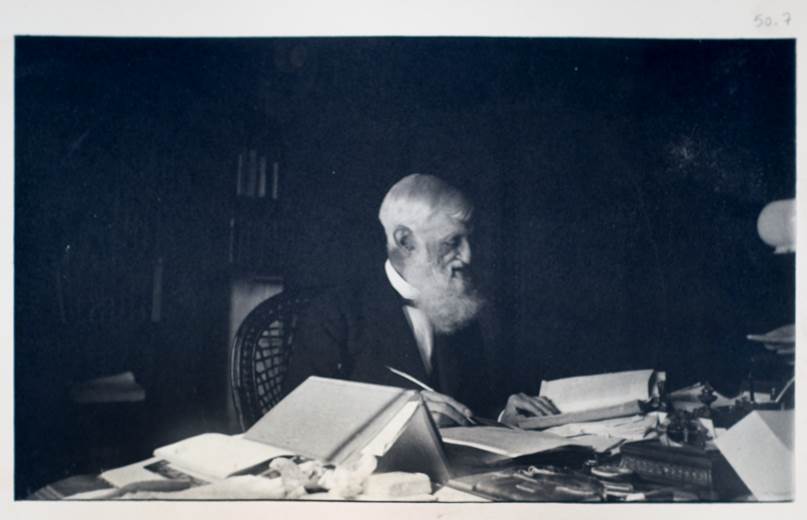By Dan Hinchen, Reader Services
In many archives, staff numbers are so low that all members must perform many different functions, from accepting new donations of material and housing the material for storage, to arranging and describing (processing) and providing reference assistance. Often, there is even much more on top of this (think: budgeting, fundraising, outreach, etc.). In past jobs I had the opportunity/necessity of donning these different hats.
Here at the MHS we are extremely fortunate in that we have several different departments that are all responsible for carrying out these functions, not in isolation but with focus and a degree of specialization. All of this results in the smooth operation of the organization as an archive.
As someone who works (and very much enjoys) working on the public side of things, being part of a dedicated reference staff is great. I am able to focus much of my attention on the researchers, both in-person and remote, who want to utilize the collections we hold. However, this means that I run the risk of growing rusty with other archival functions. Thankfully, this is a collaborative organization and we get the chance to work with other departments to varying degrees at different times.
In the past year, I had the opportunity to take part in the re-processing of the George Bancroft papers. This collection of papers from the 19th century historian/diplomat relates to his time as a student – both at Harvard University and at Georgia Augusta University in Gottingen, Germany – as a schoolmaster, poet, historian, and diplomat. Bancroft’s writings and correspondence correlate to myriad events in American history during the 19th century and are a vital source of information for his lifetime.

Bancroft at work in his later years
(from the Marian Hooper Adams photographs, MHS)
Until now, this large collection (60+ boxes, 50+ volumes) was only given a basic level of description in our online catalog, ABIGAIL. While the material has been arranged and accessible to researchers, there was very little information forthcoming about the content of the papers and volumes. With that in mind, the Society decided to revisit the collection and give it a bit more attention in the hopes that more researchers will find their way to it.
While the MHS’ Collection Services department carries out our normal processing activities, we in Reader Services are occasionally able to get a hand in so that we can keep our non-reference skills sharp. The Bancroft papers were my opportunity to get into the process.
I was tasked with going through the 50+ volumes in the collection in order to get a grasp on the general types of volumes they are (i.e. diaires, journals, memoranda books, account books, etc.) and to get some idea of the content therein, then to house the material appropriately, and then to provide descriptions of the various volumes, along with a biographical profile of the man, for inclusion in a new online finding aid.
What this means for me is that I not only learned a great deal about Bancroft’s early life as a student in Germany, but also that I got to practice my processing. This was a bit of a reeducation for me since I have not been in a position to process materials for a few years now.
Aside from re-housing all of the material in the collection (new boxes for loose papers, cases for many volumes, etc.), the major deliverable item from this project is the new online finding aid for the Bancroft papers. Unlike the catalog records in ABIGAIL, our online finding aids are discoverable via web searches using search engines like Google. Our hope is that now many more people from near and far can more easily learn about what the collection holds and perhaps come to the library to dig in even deeper.
Are you interested in learning more about Mr. Bancroft and his milieu? Take a look through the guide and then consider Visiting the Library!

